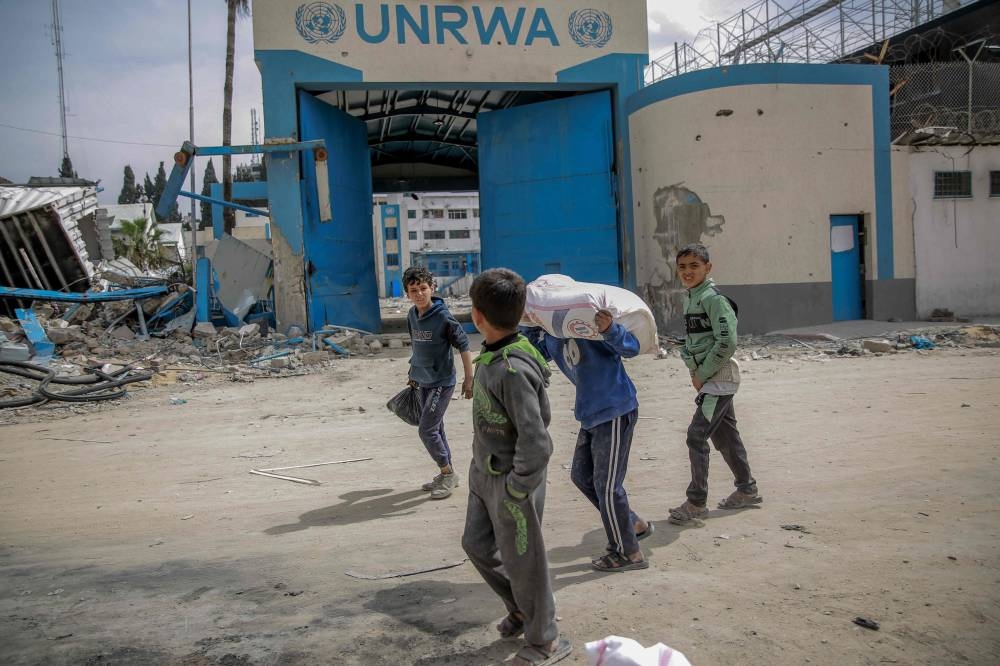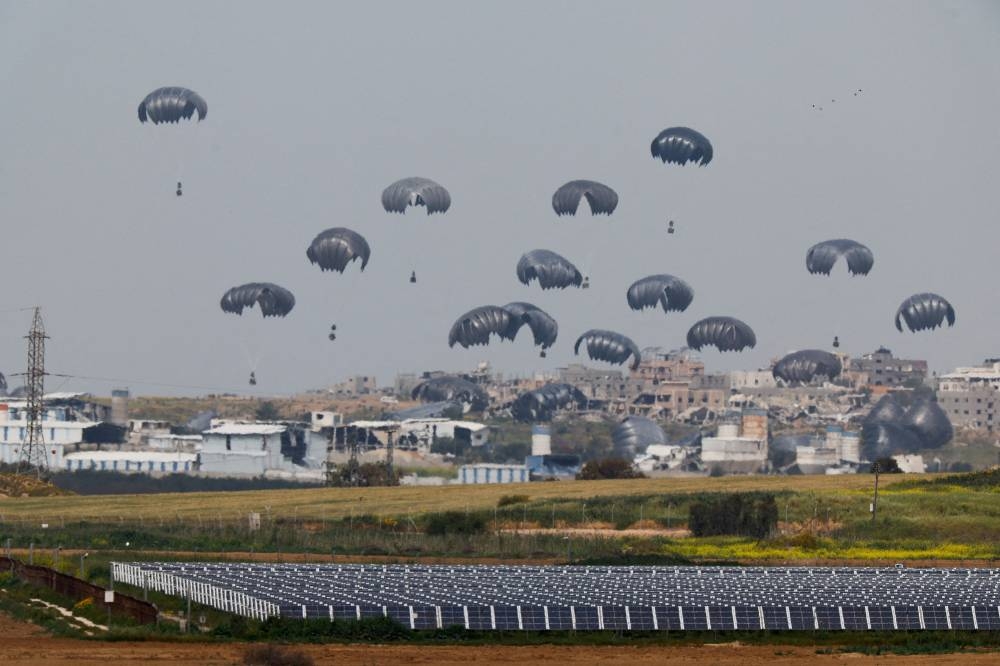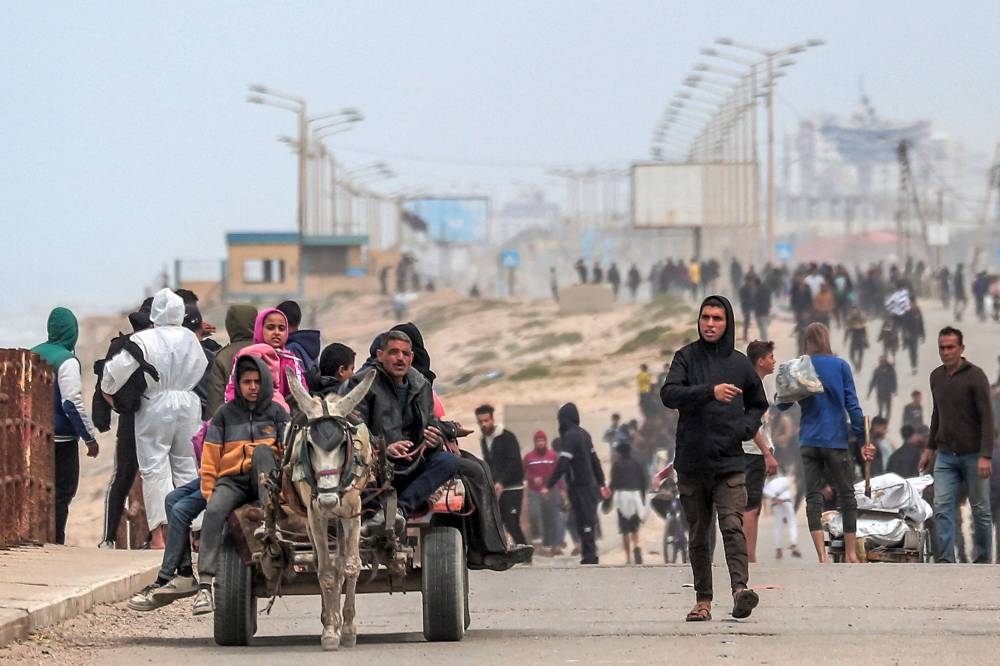- Guterres calls for Israel to allow unfettered aid access
- Biden to speak to Netanyahu
The Integrated Food-Security Phase Classification (IPC), whose assessments are relied on by UN agencies, said 70% of people in parts of northern Gaza were now afflicted by the most severe level of food shortage, far exceeding the 20% famine threshold.
In a famine, food shortages are followed first by widespread malnutrition and then mass deaths. The IPC said malnutrition is probably already at famine levels; it did not have enough data on death rates, but estimated residents would be dying at famine scale imminently, and children under four may already be.
"The actions needed to prevent famine require an immediate political decision for a ceasefire together with a significant and immediate increase in humanitarian and commercial access to the entire population of Gaza," it said.
"All efforts must be made to ensure the provision of food, water, medicines, and protection of civilians, as well as to restore and provide health, water, and sanitation services, and energy."
In all, 1.1 million Gazans, around half the population, were experiencing "catastrophic" shortages of food, the worst category, with around 300,000 in the areas now facing the prospect of famine-scale death rates.
The prospect of a manmade famine in Gaza has brought the strongest criticism of Israel from Western allies since it launched its war against Hamas militants following their attack on Israeli territory on Oct. 7.
"In Gaza we are no longer on the brink of famine, we are in a state of famine, affecting thousands of people," EU foreign policy chief Josep Borrell said at the opening of a conference on humanitarian aid for Gaza in Brussels.
"This is unacceptable. Starvation is used as a weapon of war. Israel is provoking famine."
UN Secretary-General Antonio Guterres called the IPC report an "appalling indictment" and said Israel must allow complete and unfettered access to all parts of Gaza.
"This is an entirely manmade disaster - and the report makes clear that it can be halted."
Israel, which initially allowed aid into Gaza through only two checkpoints on the enclave's southern edge, says it is opening more routes by land, as well as allowing sea shipments and air drops. The first boat carrying aid arrived last week.
Aid agencies say they still cannot get enough supplies through or distribute them safely, especially in the north, and that access and security are Israel's responsibility.
In the ruins of Gaza City, the main settlement in the north of the Gaza Strip, Israeli forces launched a major assault on Al Shifa hospital overnight. Once the Gaza Strip's biggest hospital, it is now one of the only medical facilities still even partially functioning in the north of the territory.
Israel said it had killed 20 Hamas fighters, including a senior Hamas commander, Fayeq al-Mabhouh, in the hospital. The Hamas-linked Shehab news agency described Mabhouh as a security official overseeing protection of aid shipments. Residents described some of the heaviest fighting in northern Gaza for months.
Negotiations for a ceasefire in the war, now in its sixth month, were due to resume on Monday with an Israeli delegation led by the country's spy chief heading to Qatar. But an Israeli official said nailing down any deal would probably take at least two more weeks, a clear disappointment for Washington which had sought a deal by the start of the Ramadan holy month last week.
US President Joe Biden was due to speak to Prime Minister Benjamin Netanyahu later on Monday. The leader in the US Senate from Biden's Democratic Party called on Israelis last week to replace Netanyahu, saying he was wrecking Israel's international standing by allowing too much suffering in Gaza.
The war began when Hamas fighters stormed into Israel, killing 1,200 people and capturing 253 hostages according to Israeli tallies. Since then, Israel's assault has killed more than 31,000 Gazans, according to Palestinian health officials.
Both sides have been discussing a truce of around six weeks during which around 40 hostages would be freed in exchange for hundreds of Palestinian prisoners and aid would be rushed into the Gaza Strip. Israel says it will discuss only a temporary pause in fighting; Hamas says it will not free its hostages without a deal that would end the war.
The Israeli army said troops had entered Al Shifa based on intelligence that the hospital was being used by senior Hamas leaders. Mohammad Ali, 32, a father of two who lives around 1 km from the hospital, told Reuters via a chat app that the sound of the assault awoke the neighbourhood at around 1:00 am.
"Soon tanks started to roll, they came from the western road and headed toward Al Shifa, then sounds of gunfire and explosions increased," he said. "We don't know what is happening, but it looked as if it was a re-invasion of the Gaza City."
The health ministry in Hamas-run Gaza said displaced people inside the hospital had been killed in a fire caused by the raid: "There are casualties, including deaths and injuries, and it's impossible to rescue anyone due to the intensity of the fire and targeting of anyone approaching the windows."
Sami Abu Zuhri, a senior Hamas official in exile, told Reuters the assault on the hospital was proof that Israel was "a message that (Israel) isn't interested in reaching any agreement. It aims to kill only."



